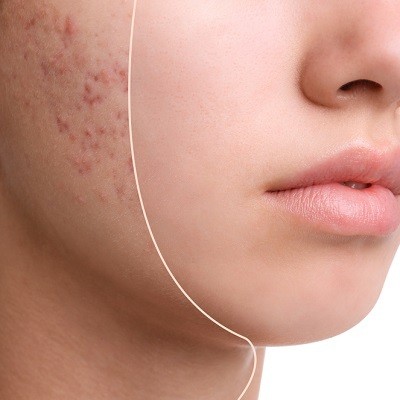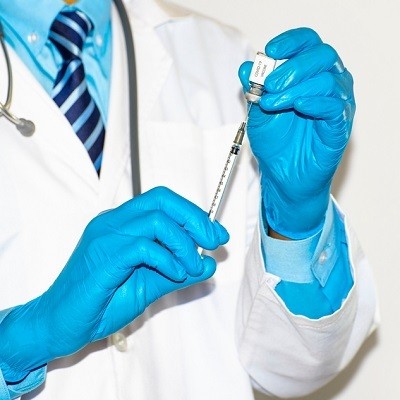Can gynecomastia come back after surgery?

Strong 8k brings an ultra-HD IPTV experience to your living room and your pocket.
Gynecomastia in Islamabad is a highly effective solution for men looking to permanently reduce excess breast tissue and achieve a more masculine chest contour. However, one of the most common concerns among patients is whether gynecomastia can return after surgery. While recurrence is rare, it is not entirely impossible. Understanding the factors that contribute to gynecomastia recurrence and how to prevent it can help ensure long-lasting results.
Understanding Gynecomastia Surgery
Gynecomastia surgery typically involves one or both of the following techniques:
Liposuction: This method removes excess fat deposits in the chest area through small incisions. It is effective for patients whose gynecomastia is primarily due to fat accumulation.
Glandular Tissue Excision: In cases where glandular breast tissue is the main cause of gynecomastia, surgical excision is performed to remove the excess tissue.
Combination of Both: Many patients require a combination of liposuction and excision to achieve optimal results.
Since glandular tissue does not regenerate, true recurrence of gynecomastia is uncommon. However, certain lifestyle, hormonal, and medical factors can lead to a similar appearance even after surgery.
Can Gynecomastia Return After Surgery?
While gynecomastia surgery is designed to be a permanent solution, the following factors can contribute to the reappearance of enlarged male breasts:
1. Significant Weight Gain
Although glandular tissue is removed during surgery, fat cells remain in the chest area. Gaining excessive weight can cause fat accumulation in the chest, mimicking the appearance of gynecomastia. Maintaining a stable weight post-surgery is crucial to preserving the results.
2. Hormonal Imbalances
Hormonal fluctuations play a significant role in gynecomastia development. High estrogen levels or low testosterone levels can trigger the growth of breast tissue. Factors that may contribute to hormonal imbalance include:
Certain Medications: Some drugs, such as anabolic steroids, anti-androgens, and specific antidepressants, can cause hormonal fluctuations.
Medical Conditions: Liver disease, thyroid disorders, and adrenal gland dysfunction can alter hormone levels and potentially lead to recurrence.
Aging: As men age, testosterone levels naturally decline, increasing the risk of estrogen dominance.
3. Use of Anabolic Steroids or Hormone Supplements
Bodybuilders or athletes who use anabolic steroids are at higher risk of developing recurrent gynecomastia. Steroids can cause estrogen conversion in the body, leading to breast tissue growth even after surgical removal.
4. Substance Abuse (Alcohol, Marijuana, and Drugs)
Certain substances have been linked to hormonal imbalances and gynecomastia recurrence:
Alcohol: Excessive alcohol consumption can impair liver function, leading to estrogen buildup.
Marijuana: Studies suggest that THC in marijuana can impact testosterone levels and contribute to gynecomastia.
Other Recreational Drugs: Heroin, methamphetamine, and certain prescription drugs can also interfere with hormone regulation.
5. Incomplete Tissue Removal
In rare cases, if the surgeon does not remove all excess glandular tissue, a small portion may remain. This residual tissue could grow under certain hormonal conditions, leading to the reappearance of gynecomastia.
6. Post-Surgical Complications
Improper healing, excessive scar tissue formation, or seroma (fluid buildup) may cause irregularities in the chest, creating the illusion of recurring gynecomastia. Following post-operative care instructions can help minimize these risks.
How to Prevent Gynecomastia Recurrence
While the risk of gynecomastia recurrence is low, adopting healthy habits can help ensure long-term results. Here are some key strategies:
1. Maintain a Healthy Weight
Staying within a stable weight range reduces the likelihood of fat accumulation in the chest area. Regular exercise, including strength training and cardiovascular workouts, can help maintain a toned physique.
2. Monitor Hormonal Health
Regular medical check-ups can help detect hormonal imbalances early. If you have a history of hormone-related conditions, work with your doctor to keep testosterone and estrogen levels in balance.
3. Avoid Steroids and Hormone-Altering Substances
If you are involved in bodybuilding or athletic training, consult a medical professional before using any hormone-based supplements or anabolic steroids.
4. Limit Alcohol and Recreational Drug Use
Reducing alcohol intake and avoiding marijuana or other recreational drugs can help maintain healthy hormone levels and prevent potential gynecomastia recurrence.
5. Follow Post-Surgical Care Instructions
Proper post-operative care is crucial for achieving optimal results. Wearing a compression garment, avoiding strenuous activities, and following a balanced diet can promote better healing and prevent complications.
6. Choose an Experienced Surgeon
Selecting a board-certified and experienced plastic surgeon can significantly reduce the risk of gynecomastia recurrence. Skilled surgeons ensure thorough glandular tissue removal while minimizing scarring and post-operative issues.
What to Do If Gynecomastia Returns?
If you notice the reappearance of gynecomastia symptoms after surgery, consult your surgeon or a medical professional for evaluation. They may recommend:
Hormonal Testing: Blood tests can help identify underlying hormonal imbalances.
Lifestyle Adjustments: Changes in diet, exercise, and substance use may prevent further breast tissue growth.
Revision Surgery: In rare cases, a second procedure may be required if significant glandular tissue was left behind or new tissue has developed.
Conclusion
Gynecomastia surgery provides long-lasting results, but recurrence is possible in certain situations. By maintaining a healthy lifestyle, monitoring hormone levels, and avoiding substances that can trigger hormonal imbalances, patients can minimize the chances of gynecomastia returning. If you have concerns about potential recurrence, discussing them with an experienced surgeon before surgery can help set realistic expectations and ensure the best possible outcome.
Note: IndiBlogHub features both user-submitted and editorial content. We do not verify third-party contributions. Read our Disclaimer and Privacy Policyfor details.







